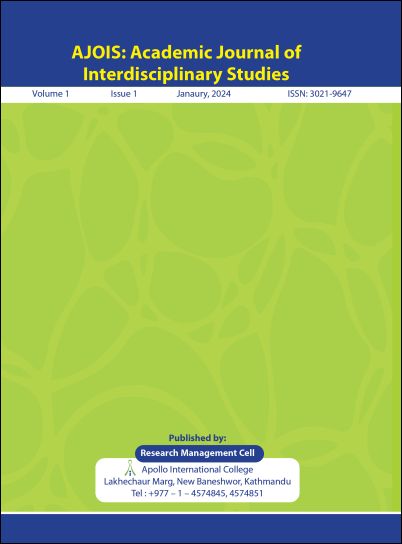Contribution and Effectiveness of Remuneration Tax in Nepal
DOI:
https://doi.org/10.3126/ajois.v1i1.62939Keywords:
Professional income, defective Tax rate, unfair & weak administration, tax deduction at source (TDS), exemption limitAbstract
The research has been carried out with the aim to examine the contribution and effectiveness of remuneration tax in Nepal. Both primary and secondary sources of data have been used in the study. Opinion survey technique has been adopted while collecting primary data. Tax experts and employees from Kathmandu valley covering sample size 120 are taken. The remuneration tax has a significant contribution on total government revenues. Remuneration tax has 2% to 20% contribution on total income tax during ten fiscal years. Highest 22% opined unfair and weak administration is found as major problem of remuneration tax. The main factor that should be initiated to increase the contribution of remuneration tax in Nepal is making tax deduction at source (TDS) effective. The other factors should be initiated to increase the contribution of remuneration tax in Nepal are, reform in the income tax policy, rules and regulation, reduction in exemption limit and increase in tax rates.




